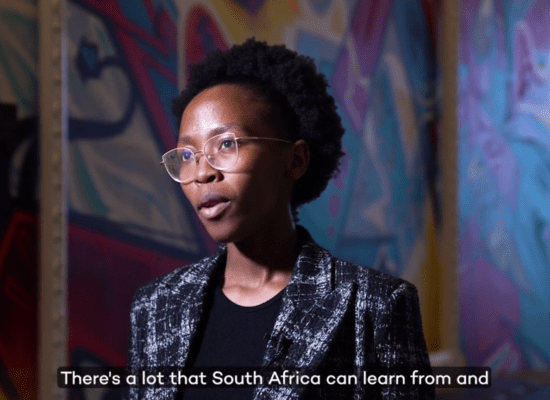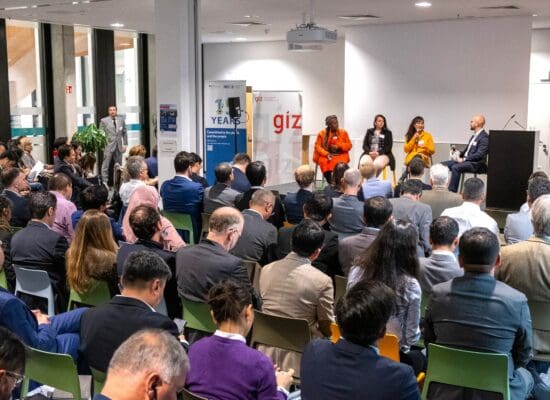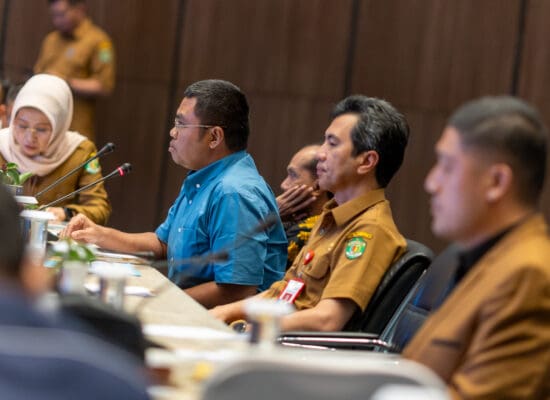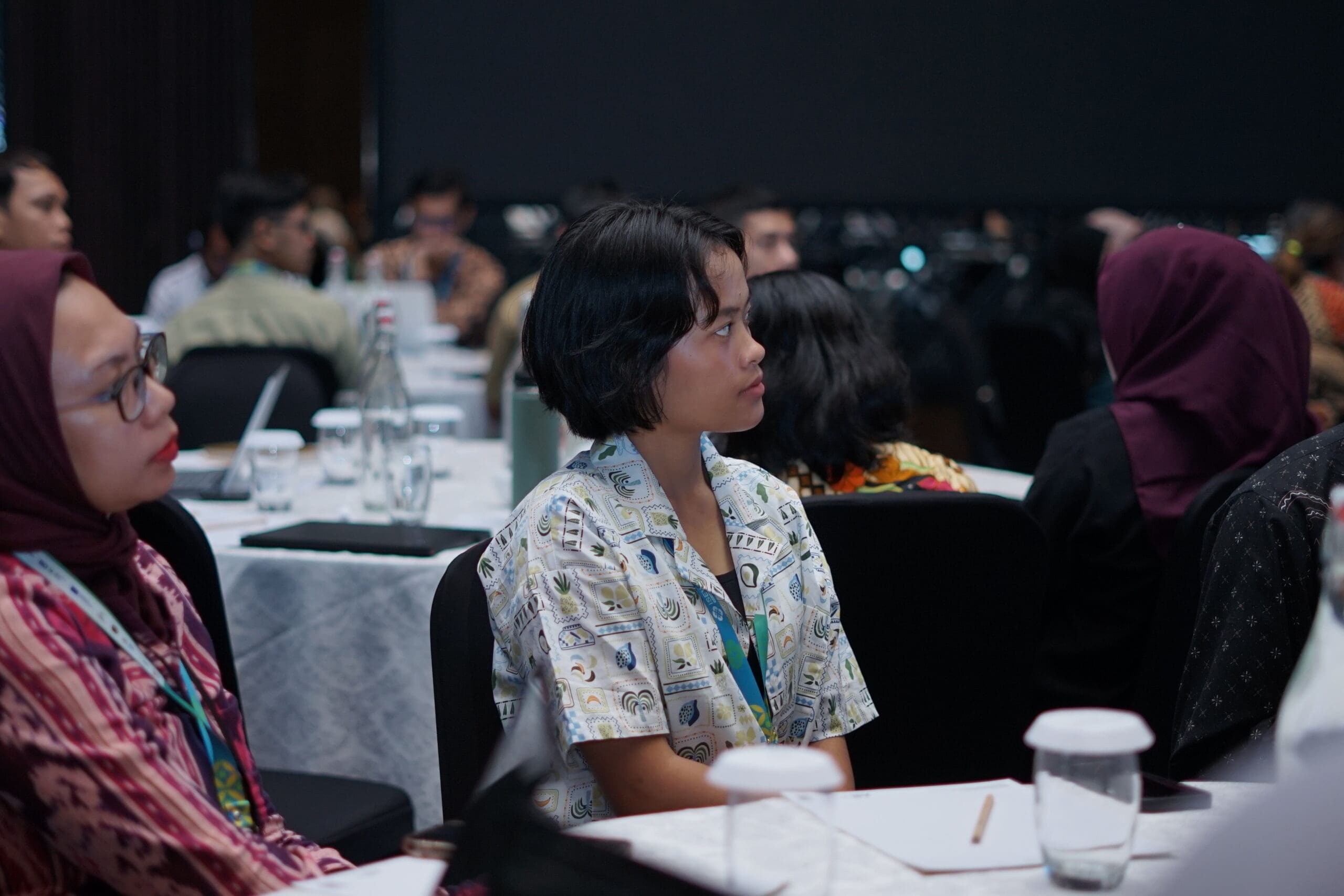
As the world moves away from fossil fuels, regions dependent on coal face complex transition challenges. In October 2025, around 100 experts, policy-makers, and leaders from across the globe gathered in Samarinda, East Kalimantan—the heart of Indonesia’s coal industry—for the third edition of the International Forum for Coal Regions in Transition. The event, organised under the Innovation Regions for a Just Energy Transition (IKI JET) project, provided a global platform for exchanging knowledge and sharing regional experiences.
Against a backdrop of coal barges gliding east on the Mahakam River, bound for industrial sites across Indonesia and export abroad, the hybrid forum brought together governments, regional authorities, labour unions, academia, civil society, and the private sector for a dialogue on building sustainable futures in coal-dependent regions. This year, the forum was held as part of Indonesia Sustainable Energy Week Goes Regional (ISEWGR), in collaboration with the Clean, Affordable and Secure Energy (CASE) for Southeast Asia project and the German-Indonesian Energy Cooperation Hub of the Deutsche Gesellschaft für Internationale Zusammenarbeit (GIZ).
The full-day forum explored strategies for economic diversification, mobilising investments for renewable energy, identifying opportunities for small businesses, and repurposing former mining land.

Keynote Speeches
In his opening remarks, Dedi Rustandi, coordinator for New, Renewable Energy and Energy Conservation (EBTKE) at the National Development Planning Agency (Bappenas), emphasised that strong commitment from all levels of government, as well as multisectoral collaboration, is essential to achieving a just transition. Citing “learning by doing” cases such as Sangatta in East Kalimantan and Sawahlunto in West Sumatra, he stressed that mine closures that do not lead to increased poverty are possible.
Philipp Schattenmann, director of the IKI JET project at GIZ, acknowledged the benefits delivered by coal in the past but highlighted the momentum of progress and the inevitability of change, noting the need to adapt to a post-coal future. As renewables and batteries become increasingly competitive, he said, coal regions must seize the opportunities they present to avoid being left behind.
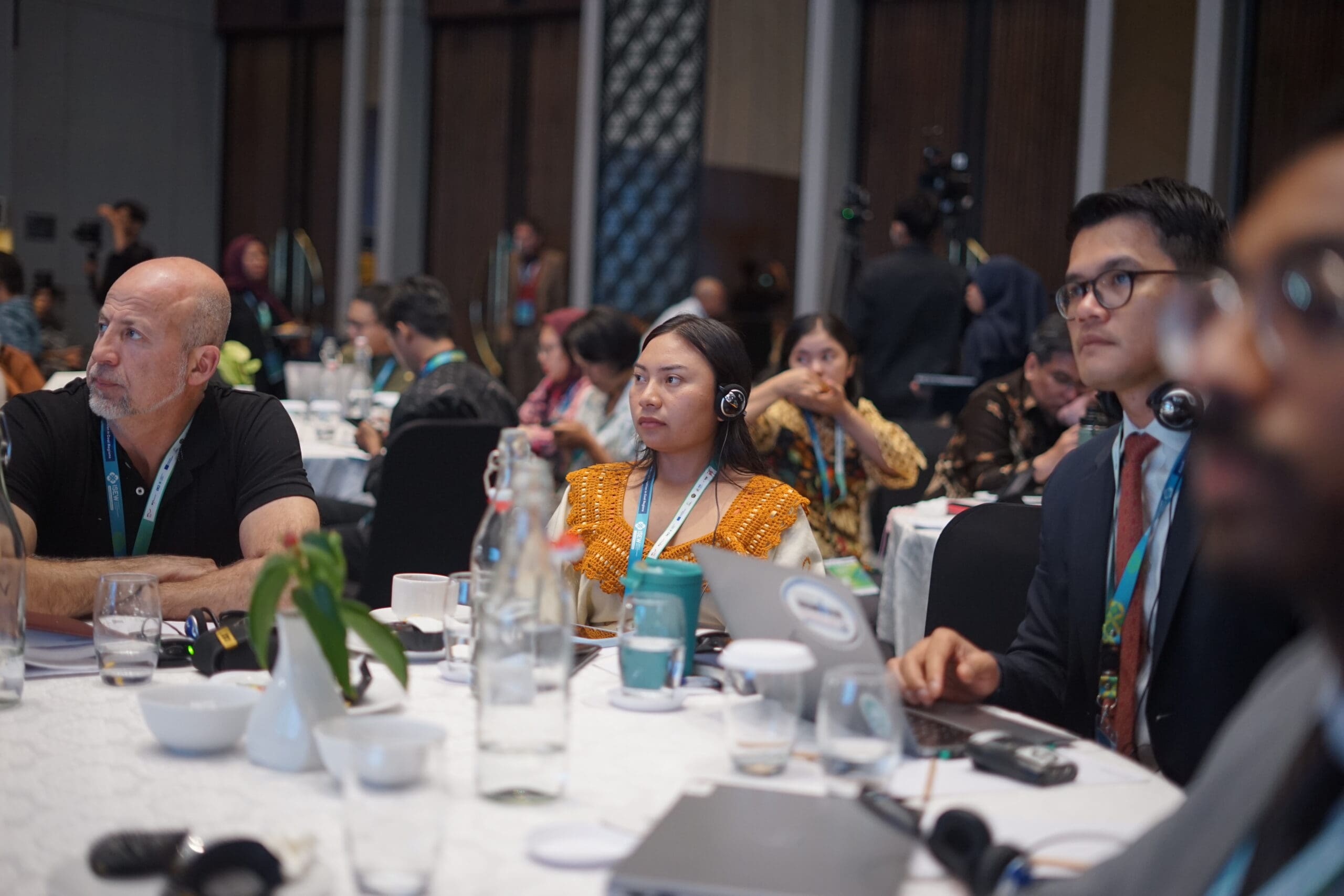
Key Takeaways
A central theme of this year’s forum was how regional and local governments can translate high-level energy transition goals into concrete action on the ground. Sri Wahyuni, the provincial secretary of East Kalimantan Province, emphasised the important role that subnational authorities play in mobilising finance and enabling clean energy investments by facilitating land and permits, preparing the workforce, encouraging local community participation, and providing incentives in the form of road and clean water infrastructure. Innovative ideas, such as converting former coal mines into solar farms, are emerging as practical solutions that can promote mine reclamation and responsible closures, create jobs for former coal workers and local communities, and simplify land acquisition for renewable projects.
Similar experiences from other parts of the world show that economic diversification and social inclusion are at the heart of just transitions. Eloïse O’Carroll, programme manager for Forestry, Natural Resources, and Energy of the European Union (EU) Delegation to Indonesia, showcased the EU Just Transition Fund (JTF), a scheme that helps EU regions dependent on coal, oil, and other carbon-intensive industries upskill workers, develop new industries, and expand renewable energy. The projects funded so far offer lessons in how immediate challenges can be addressed and long-term plans for economic diversification can be supported. In the Polish subregion of Konin, for instance, 2,200 former mining and power plant workers are set to be reskilled and upskilled with support from the fund, while in Sweden, the H2-Labs project is building a test bed for hydrogen applications in energy systems and industries.
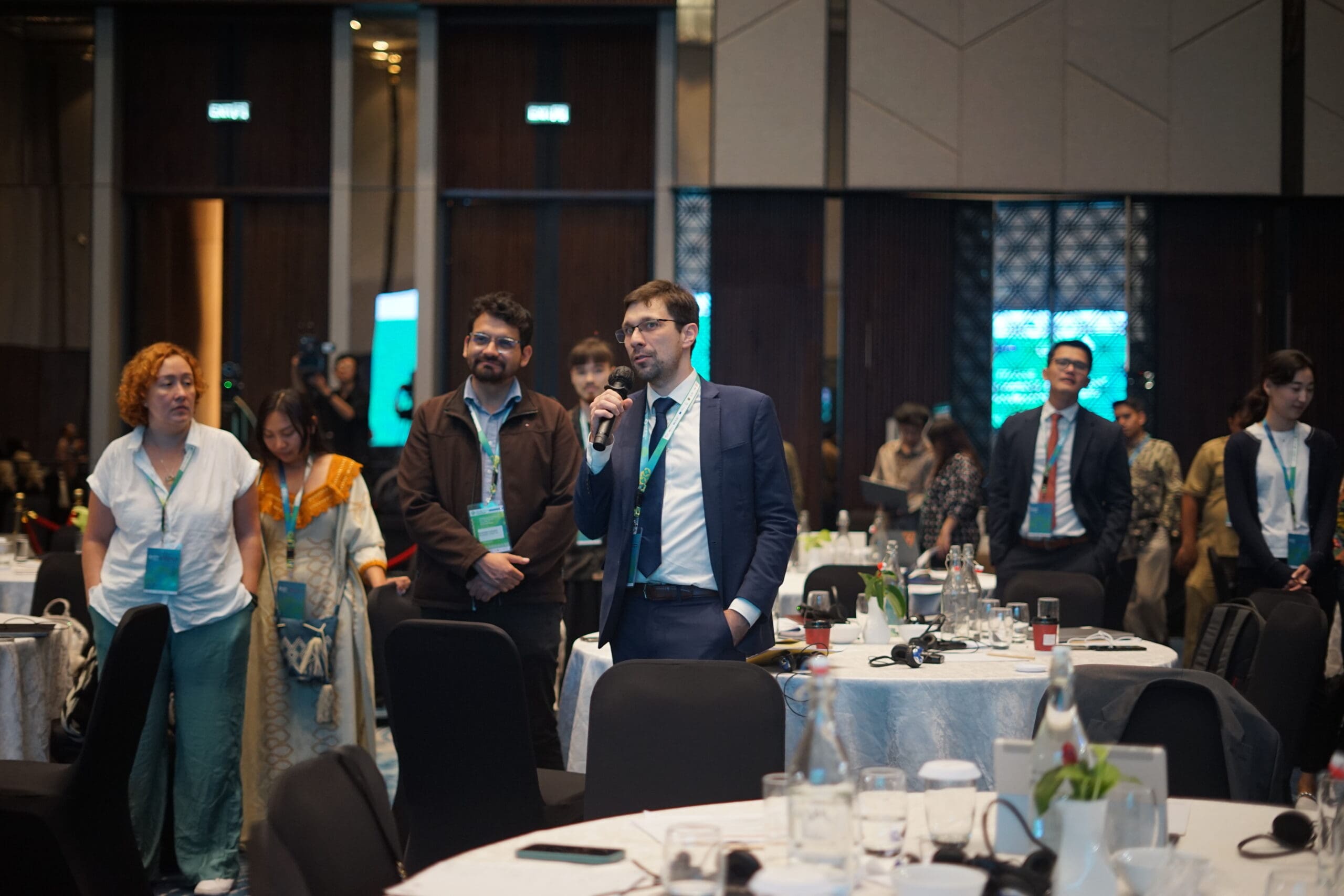
Delegates from South Africa, which hosted the 2024 International Forum in Pretoria, shared their experiences from the coal-mining region of Mpumalanga, where local governments are focusing on climate-resilient infrastructure and green energy to tackle climate risks and poverty. Edwin Mametja, divisional manager of Climate Change and Biodiversity at the Nkangala District Municipality, outlined how the district also benefits from a robust monitoring and evaluation system to help track progress in its intervention programmes.
Bringing perspectives from Colombia and Latin America, Karem Castro, technical and strategic coordinator of Transforma, showcased how energy communities can advance social justice during the energy transition. Diagnostic assessments provide a foundation for projects tailored to local realities, while trust-building with communities allows inclusive participation and co-design of activities. Yet, securing finance for small-scale community projects remains a key challenge, requiring stronger institutional coordination.

An overarching theme throughout the conference was economic diversification in coal regions. Hari Wibawa, head of the Economic and Development Financing Division at the Regional Development Planning Agency (Bappeda) of South Sumatra Province, highlighted the region’s inclusive social dialogue forum, which brings together stakeholders and local communities to plan a roadmap for economic diversification. The forum aims to identify potential sectors to replace coal and the challenges that might arise in developing them.
Speakers also touched on the major obstacles faced during the energy transition, including loss of state income and a lack of public acceptance of renewables projects. Timon Wehnert, co-lead of the International Energy Transitions Research Unit at the Wuppertal Institute, emphasised that channelling economic benefits from renewables projects directly to local communities—through tax revenue sharing systems, community benefit schemes, and local ownership—can improve public support. Complementing this, Götz von Stumpfeldt, an advisor at IKI JET and GIZ, presented a practical handbook on economic diversification, offering tools for regional authorities to identify promising sectors with the highest potential; align strategies with social, environmental, and economic objectives; and leverage available data to develop comprehensive transition plans. The handbook also includes technical tools to estimate economic potential through market analysis and mapping of relevant actors.
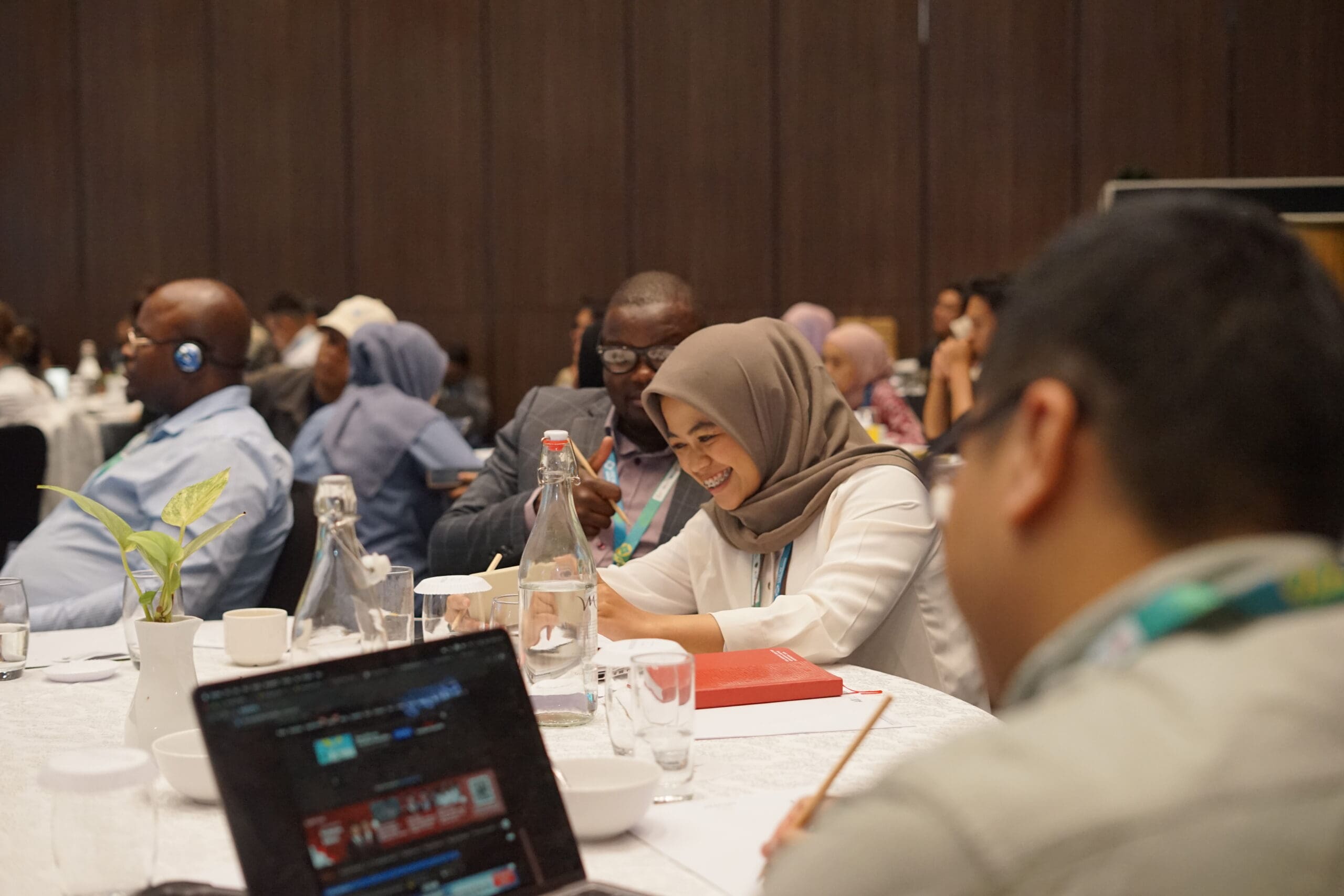
Finally, the forum touched on the role of micro-, small-, and medium-sized enterprises (MSMEs) in the transition. Lishia Erza, who chairs the SME Entrepreneurship Capacity Building and Inclusive Economy Department at the Indonesian Employers Association (APINDO), emphasised that the clean energy supply chain provides many opportunities for MSMEs through installation, maintenance, repair, and logistics for renewables, battery storage, and electric mobility. By leveraging their existing capabilities and local networks, MSMEs can play a central role in advancing the clean energy transition and ensuring that its benefits remain within local communities.
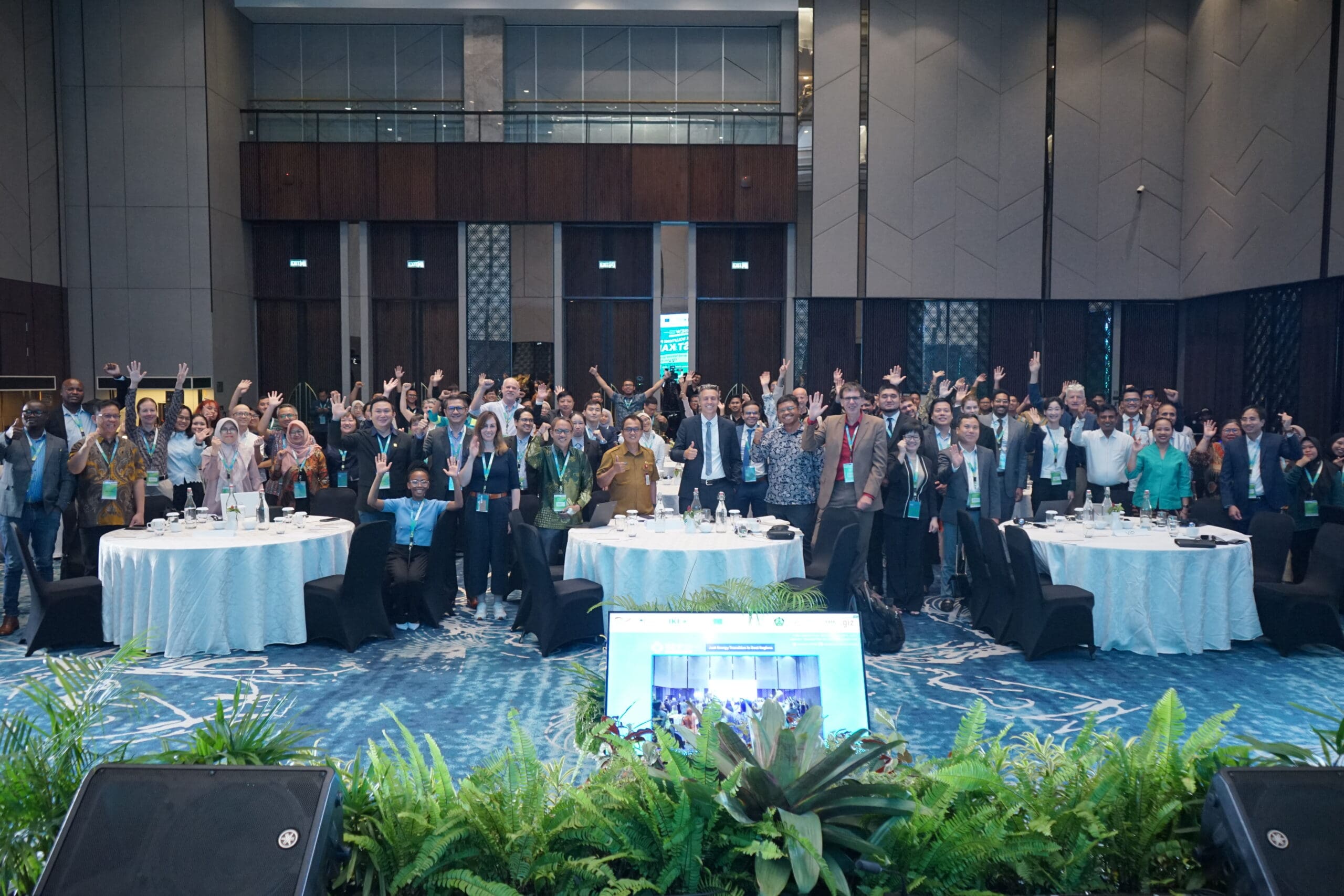
All photos by Ranam Production
See all presentations:
See the full recording:
Video highlights:
Stay Informed and Engaged
Subscribe to the Just Energy Transition in Coal Regions Knowledge Hub Newsletter
Receive updates on just energy transition news, insights, knowledge, and events directly in your inbox.
